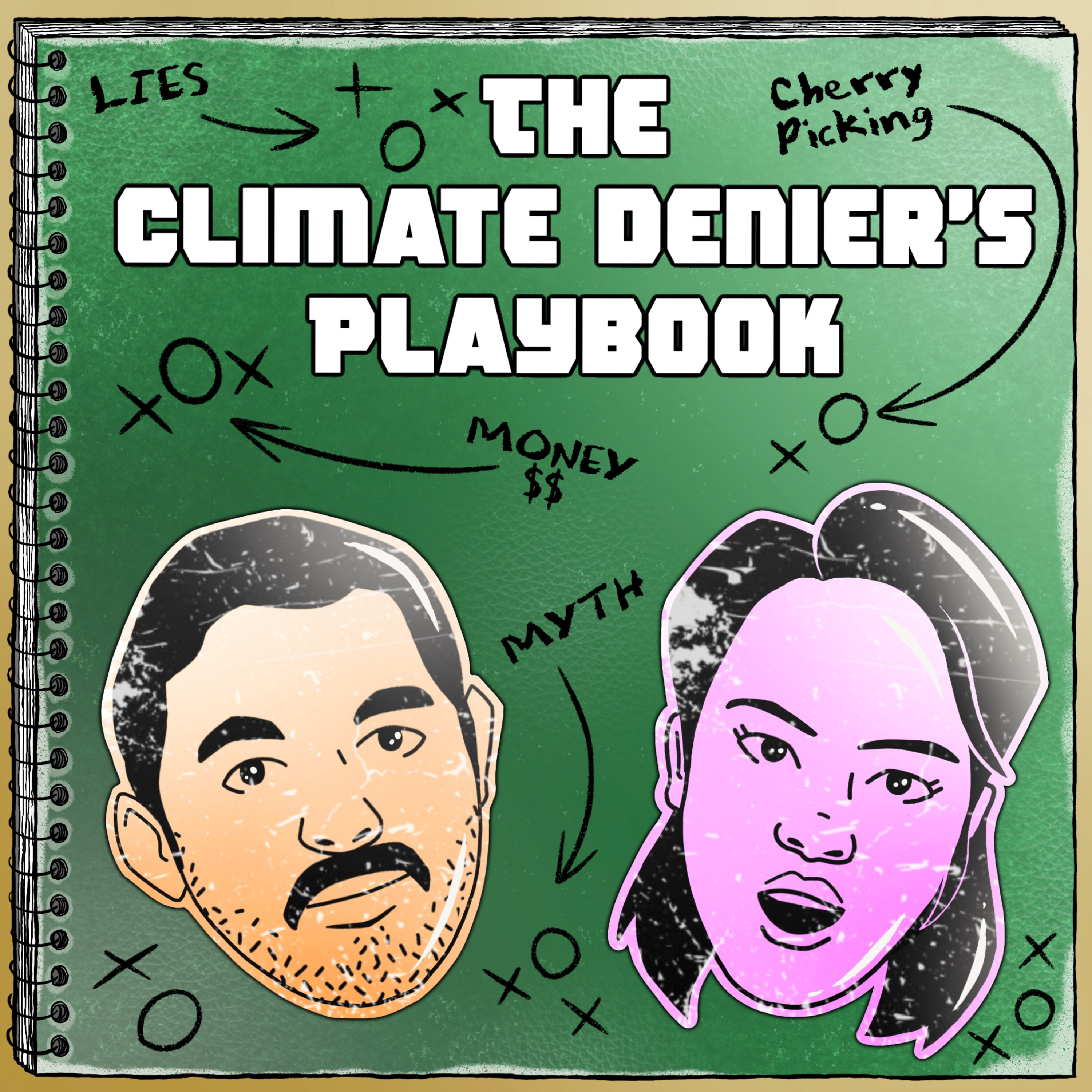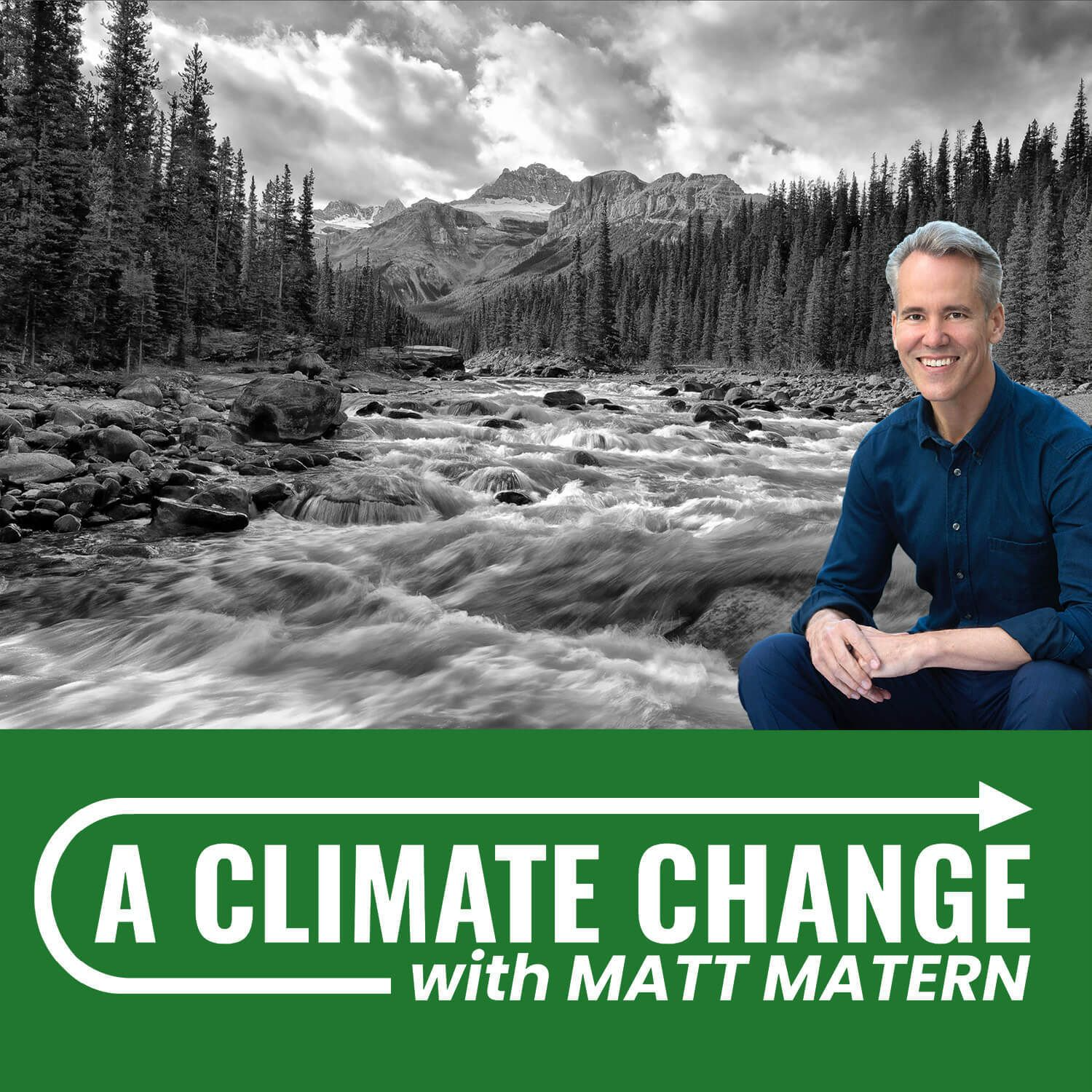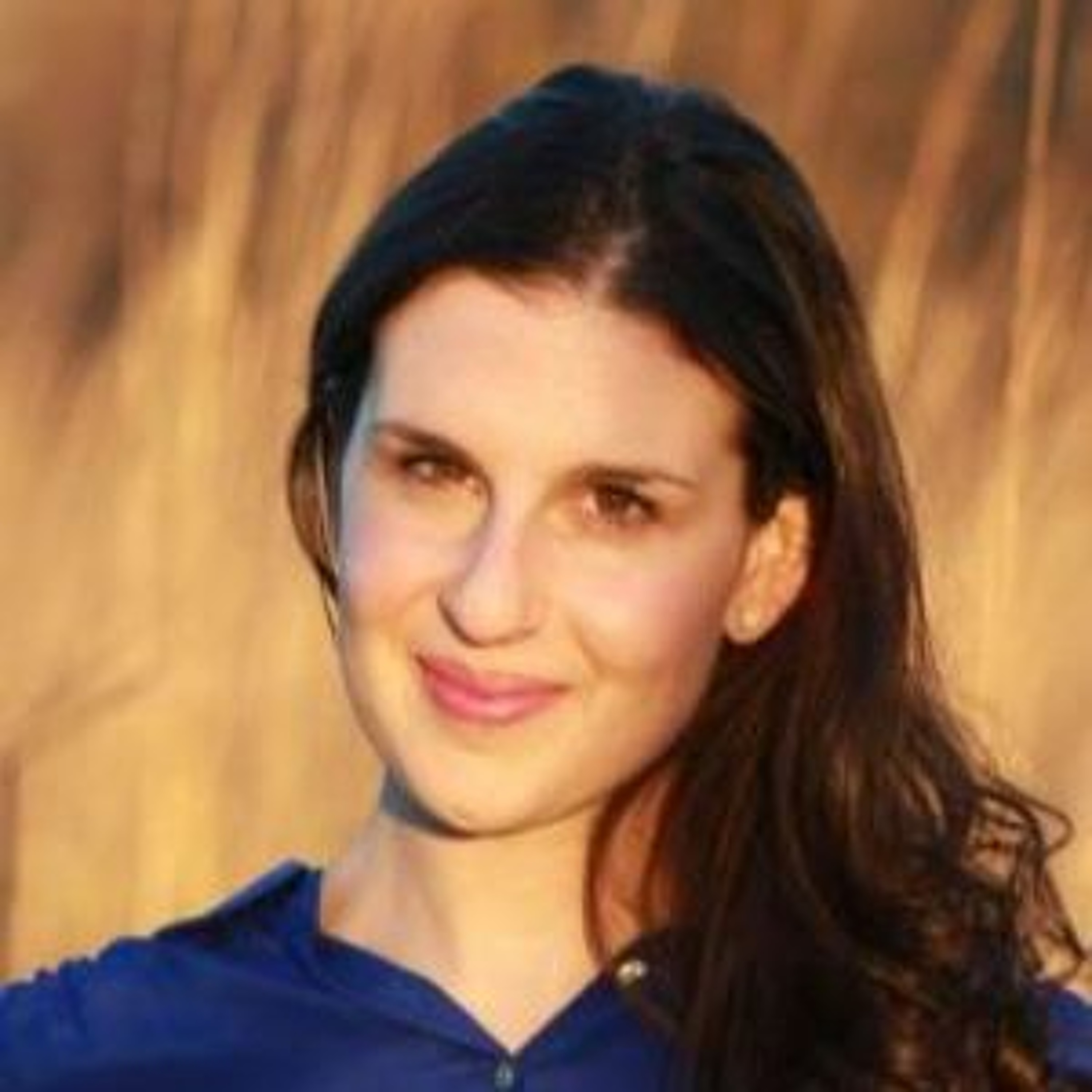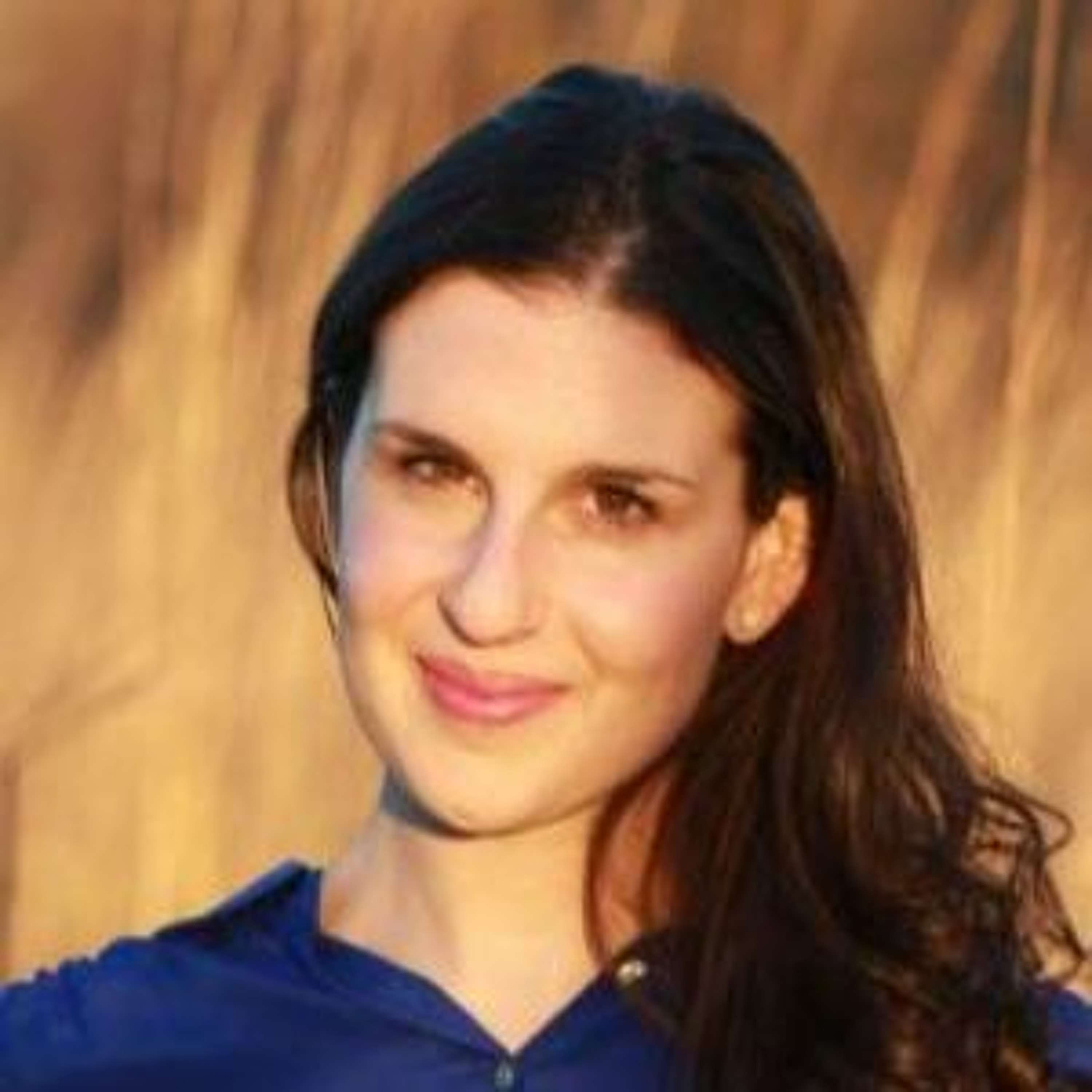Shows
 Climate OneSuper Pollutants: The Hidden Half of Global WarmingCarbon dioxide is a big deal. It’s responsible for about half of global heating. But what about the other half? There’s actually good news here: Nearly half of the temperature increases driving climate disasters come from super pollutants, most of which don’t stay in the atmosphere for nearly as long as carbon dioxide — which can last for centuries. Methane, for example, is about 80 times more potent at warming the climate than carbon dioxide over 20 years. But it only stays in the atmosphere for a fraction of the time. So if we can put the brakes on methane...2025-06-131h 09
Climate OneSuper Pollutants: The Hidden Half of Global WarmingCarbon dioxide is a big deal. It’s responsible for about half of global heating. But what about the other half? There’s actually good news here: Nearly half of the temperature increases driving climate disasters come from super pollutants, most of which don’t stay in the atmosphere for nearly as long as carbon dioxide — which can last for centuries. Methane, for example, is about 80 times more potent at warming the climate than carbon dioxide over 20 years. But it only stays in the atmosphere for a fraction of the time. So if we can put the brakes on methane...2025-06-131h 09 Commonwealth Club of California PodcastSuper Pollutants: The Hidden Half of Global WarmingCarbon dioxide is a big deal. It’s responsible for more than half of global heating. But what about the other half? There’s actually good news here: Nearly half of the temperature increases driving climate disasters come from super pollutants that don’t stay in the atmosphere for nearly as long as carbon dioxide. Methane, for example, is about 80 times more potent a greenhouse gas than carbon dioxide over 20 years. But it only stays in the atmosphere for a fraction of the time. So if we can put the brakes on methane and other super pollutants, we can put th...2025-06-131h 05
Commonwealth Club of California PodcastSuper Pollutants: The Hidden Half of Global WarmingCarbon dioxide is a big deal. It’s responsible for more than half of global heating. But what about the other half? There’s actually good news here: Nearly half of the temperature increases driving climate disasters come from super pollutants that don’t stay in the atmosphere for nearly as long as carbon dioxide. Methane, for example, is about 80 times more potent a greenhouse gas than carbon dioxide over 20 years. But it only stays in the atmosphere for a fraction of the time. So if we can put the brakes on methane and other super pollutants, we can put th...2025-06-131h 05 The Climate Denier's PlaybookClimate: The Movie [Patreon Preview]How can we possibly be expected to trust settled climate science when we simply refuse to do so? Listen to the full episode on our Patreon (https://www.patreon.com/deniersplaybook) SOCIALS & MORE (https://linktr.ee/deniersplaybook)CREDITS Created by: Rollie Williams, Nicole Conlan & Ben BoultHosts: Rollie Williams & Nicole ConlanExecutive Producer: Ben Boult Producers: Ben Boult & Gregory Haddock Editor: Gregory HaddockResearchers: Carly Rizzuto, Canute Haroldson & James CrugnaleArt: Jordan Doll Music: Tony Domenick Special Thanks: The Civil Liberties Defense CenterSOURCES:Battle of Ideas 2015 | speaker | Martin...2024-06-1934 min
The Climate Denier's PlaybookClimate: The Movie [Patreon Preview]How can we possibly be expected to trust settled climate science when we simply refuse to do so? Listen to the full episode on our Patreon (https://www.patreon.com/deniersplaybook) SOCIALS & MORE (https://linktr.ee/deniersplaybook)CREDITS Created by: Rollie Williams, Nicole Conlan & Ben BoultHosts: Rollie Williams & Nicole ConlanExecutive Producer: Ben Boult Producers: Ben Boult & Gregory Haddock Editor: Gregory HaddockResearchers: Carly Rizzuto, Canute Haroldson & James CrugnaleArt: Jordan Doll Music: Tony Domenick Special Thanks: The Civil Liberties Defense CenterSOURCES:Battle of Ideas 2015 | speaker | Martin...2024-06-1934 min Hydrogen Economist PodcastCould hydrogen leaks be a climate risk?Hydrogen Economist’s senior reporter Polly Martin speaks to Ilissa Ocko, senior climate scientist at the Environmental Defense Fund, to discuss recent research that suggests that leakage throughout the hydrogen value chain could be a potential climate risk.
Listen to find out:
- How hydrogen in the atmosphere can indirectly affect the lifetime of greenhouse gases
- The additional risk of methane leakage from blue hydrogen’s upstream
- What industry and regulators can do to minimise the risk of leakage2023-05-0519 min
Hydrogen Economist PodcastCould hydrogen leaks be a climate risk?Hydrogen Economist’s senior reporter Polly Martin speaks to Ilissa Ocko, senior climate scientist at the Environmental Defense Fund, to discuss recent research that suggests that leakage throughout the hydrogen value chain could be a potential climate risk.
Listen to find out:
- How hydrogen in the atmosphere can indirectly affect the lifetime of greenhouse gases
- The additional risk of methane leakage from blue hydrogen’s upstream
- What industry and regulators can do to minimise the risk of leakage2023-05-0519 min A Climate Change with Matt Matern96: Dr. Ilissa Ocko: Climate Change, Methane, and Sustainable SolutionsIlissa Ocko, with a PhD in atmospheric physics, discusses climate change, focusing on methane, a potent short-lived climate pollutant. She highlights the need for better methane leak detection and repair, especially in oil and gas sectors.
Ocko emphasizes hydrogen's potential as a climate solution but notes challenges like leakage and energy-intensive production. Despite progress, methane levels are rising, and she stresses the importance of using existing technologies to reduce emissions. Ocko advocates for a balanced public policy approach.A Climate Change With Matt Matern is handcrafted by our friends over at: fame.soCheck out our m...2023-02-0647 min
A Climate Change with Matt Matern96: Dr. Ilissa Ocko: Climate Change, Methane, and Sustainable SolutionsIlissa Ocko, with a PhD in atmospheric physics, discusses climate change, focusing on methane, a potent short-lived climate pollutant. She highlights the need for better methane leak detection and repair, especially in oil and gas sectors.
Ocko emphasizes hydrogen's potential as a climate solution but notes challenges like leakage and energy-intensive production. Despite progress, methane levels are rising, and she stresses the importance of using existing technologies to reduce emissions. Ocko advocates for a balanced public policy approach.A Climate Change With Matt Matern is handcrafted by our friends over at: fame.soCheck out our m...2023-02-0647 min Climate CuriousHow satellites and AI can help keep 1.5 aliveHow do we measure the success of climate action if we don’t have timely data? That’s the question Lekha Sridhar, Senior Policy Analyst and Climate TRACE set out to answer. Building a satellite and AI-powered dataset to help identify where precisely emissions are coming from, it’s helping countries, governments and companies to then reduce them. On the latest Climate Curious by TEDxLondon, tune in with Ben Hurst and Maryam Pasha live from Climate Week NYC to discover which greenhouse gases are worse than others, how satellite imagery is helping us to identify observable signals of once invisi...2022-09-2927 min
Climate CuriousHow satellites and AI can help keep 1.5 aliveHow do we measure the success of climate action if we don’t have timely data? That’s the question Lekha Sridhar, Senior Policy Analyst and Climate TRACE set out to answer. Building a satellite and AI-powered dataset to help identify where precisely emissions are coming from, it’s helping countries, governments and companies to then reduce them. On the latest Climate Curious by TEDxLondon, tune in with Ben Hurst and Maryam Pasha live from Climate Week NYC to discover which greenhouse gases are worse than others, how satellite imagery is helping us to identify observable signals of once invisi...2022-09-2927 min This Way Up: Unpacking human rights for businessCost of Clean Energy: The Clean Green MachineWhile hydropower has successfully provided significant amounts of power around the world and played a important role in meeting the intermittency challenge of solar and wind, it is not a purely clean and green source of energy. Dr. Noah Kittner and climate scientist Ilissa Ocko explore the costs of hydropower including loss of food sources for local communities affected by dams, and increased methane emissions from reservoirs.
For full details of the backing tracks and soundbites used in this episode, please see this reference document.2022-09-1436 min
This Way Up: Unpacking human rights for businessCost of Clean Energy: The Clean Green MachineWhile hydropower has successfully provided significant amounts of power around the world and played a important role in meeting the intermittency challenge of solar and wind, it is not a purely clean and green source of energy. Dr. Noah Kittner and climate scientist Ilissa Ocko explore the costs of hydropower including loss of food sources for local communities affected by dams, and increased methane emissions from reservoirs.
For full details of the backing tracks and soundbites used in this episode, please see this reference document.2022-09-1436 min Climate CuriousWhy methane reduction is the ultimate climate hack"Cutting methane is the single fastest, most effective opportunity to reduce climate change risks in the near term," says atmospheric scientist Ilissa Ocko on the latest Climate Curious by TEDxLondon. That’s because methane doesn’t hang around like other greenhouse gases – but it does pack a powerful punch – so reducing it means we could slow down the rate of warming by as much as 30 percent, before 2050 – yay! Tune in with co-hosts Maryam Pasha and Ben Hurst live from TED Countdown to discover the three biggest causes of methane emissions, why methane behaves differently to carbon dioxide and why it matters, a...2022-01-1234 min
Climate CuriousWhy methane reduction is the ultimate climate hack"Cutting methane is the single fastest, most effective opportunity to reduce climate change risks in the near term," says atmospheric scientist Ilissa Ocko on the latest Climate Curious by TEDxLondon. That’s because methane doesn’t hang around like other greenhouse gases – but it does pack a powerful punch – so reducing it means we could slow down the rate of warming by as much as 30 percent, before 2050 – yay! Tune in with co-hosts Maryam Pasha and Ben Hurst live from TED Countdown to discover the three biggest causes of methane emissions, why methane behaves differently to carbon dioxide and why it matters, a...2022-01-1234 min TED ClimateThe fastest way to slow climate change | Ilissa Ocko"Cutting methane is the single fastest, most effective opportunity to reduce climate change risks in the near term," says atmospheric scientist Ilissa Ocko. That's because, unlike carbon dioxide, methane's warming power doesn't come from a gradual buildup over time but is almost entirely from recent emissions. Ocko identifies three main sources of methane pollution which, if addressed, could dramatically slow down the rate of global warming within years -- not decades. "This is the methane moment," Ocko says. Hosted on Acast. See acast.com/privacy for more information.2021-11-1710 min
TED ClimateThe fastest way to slow climate change | Ilissa Ocko"Cutting methane is the single fastest, most effective opportunity to reduce climate change risks in the near term," says atmospheric scientist Ilissa Ocko. That's because, unlike carbon dioxide, methane's warming power doesn't come from a gradual buildup over time but is almost entirely from recent emissions. Ocko identifies three main sources of methane pollution which, if addressed, could dramatically slow down the rate of global warming within years -- not decades. "This is the methane moment," Ocko says. Hosted on Acast. See acast.com/privacy for more information.2021-11-1710 min American Shoreline Podcast NetworkClimate Science & Hurricanes and New Orleans City Park | Delta DispatchesThanks for listening to this episode of Delta Dispatches. Our hosts, Simone & Jacques, catch up after a few weeks off and reflect on the long (and finally over) 2020 hurricane season. Our first guess is Ilissa Ocko, senior climate scientist with the Environmental Defense Fund. She talks about her work and how climate change impacts hurricanes. On the second half the show, we chat with Meg Adams, the Director of Environmental Stewardship at New Orleans City Park. Meg talks about the great history of City Park and how it’s embracing environmental stewardship.2020-12-0959 min
American Shoreline Podcast NetworkClimate Science & Hurricanes and New Orleans City Park | Delta DispatchesThanks for listening to this episode of Delta Dispatches. Our hosts, Simone & Jacques, catch up after a few weeks off and reflect on the long (and finally over) 2020 hurricane season. Our first guess is Ilissa Ocko, senior climate scientist with the Environmental Defense Fund. She talks about her work and how climate change impacts hurricanes. On the second half the show, we chat with Meg Adams, the Director of Environmental Stewardship at New Orleans City Park. Meg talks about the great history of City Park and how it’s embracing environmental stewardship.2020-12-0959 min Delta DispatchesClimate Science & Hurricanes and New Orleans City ParkThanks for listening to this episode of Delta Dispatches. Our hosts, Simone & Jacques, catch up after a few weeks off and reflect on the long (and finally over) 2020 hurricane season. Our first guess is Ilissa Ocko, senior climate scientist with the Environmental Defense Fund. She talks about her work and how climate change impacts hurricanes. On the second half the show, we chat with Meg Adams, the Director of Environmental Stewardship at New Orleans City Park. Meg talks about the great history of City Park and how it’s embracing environmental stewardship.
Ediit: We updated 2nd half of...2020-12-0359 min
Delta DispatchesClimate Science & Hurricanes and New Orleans City ParkThanks for listening to this episode of Delta Dispatches. Our hosts, Simone & Jacques, catch up after a few weeks off and reflect on the long (and finally over) 2020 hurricane season. Our first guess is Ilissa Ocko, senior climate scientist with the Environmental Defense Fund. She talks about her work and how climate change impacts hurricanes. On the second half the show, we chat with Meg Adams, the Director of Environmental Stewardship at New Orleans City Park. Meg talks about the great history of City Park and how it’s embracing environmental stewardship.
Ediit: We updated 2nd half of...2020-12-0359 min Future of Life Institute PodcastNot Cool Ep 19: Ilissa Ocko on non-carbon causes of climate changeCarbon emissions account for about 50% of warming, yet carbon overwhelmingly dominates the climate change discussion. On Episode 19 of Not Cool, Ariel is joined by Ilissa Ocko for a closer look at the non-carbon causes of climate change — like methane, sulphur dioxide, and an aerosol known as black carbon — that are driving the other 50% of warming. Ilissa is a senior climate scientist with the Environmental Defense Fund and an expert on short-lived climate pollutants. She explains how these non-carbon pollutants affect the environment, where they’re coming from, and why they’ve received such little attention relative to carbon. She also discusses...2019-10-3137 min
Future of Life Institute PodcastNot Cool Ep 19: Ilissa Ocko on non-carbon causes of climate changeCarbon emissions account for about 50% of warming, yet carbon overwhelmingly dominates the climate change discussion. On Episode 19 of Not Cool, Ariel is joined by Ilissa Ocko for a closer look at the non-carbon causes of climate change — like methane, sulphur dioxide, and an aerosol known as black carbon — that are driving the other 50% of warming. Ilissa is a senior climate scientist with the Environmental Defense Fund and an expert on short-lived climate pollutants. She explains how these non-carbon pollutants affect the environment, where they’re coming from, and why they’ve received such little attention relative to carbon. She also discusses...2019-10-3137 min Future of Life Institute PodcastNot Cool Ep 19: Ilissa Ocko on non-carbon causes of climate changeCarbon emissions account for about 50% of warming, yet carbon overwhelmingly dominates the climate change discussion. On Episode 19 of Not Cool, Ariel is joined by Ilissa Ocko for a closer look at the non-carbon causes of climate change — like methane, sulphur dioxide, and an aerosol known as black carbon — that are driving the other 50% of warming. Ilissa is a senior climate scientist with the Environmental Defense Fund and an expert on short-lived climate pollutants. She explains how these non-carbon pollutants affect the environment, where they’re coming from, and why they’ve received such little attention relative to carbon. She also discusses...2019-10-3137 min
Future of Life Institute PodcastNot Cool Ep 19: Ilissa Ocko on non-carbon causes of climate changeCarbon emissions account for about 50% of warming, yet carbon overwhelmingly dominates the climate change discussion. On Episode 19 of Not Cool, Ariel is joined by Ilissa Ocko for a closer look at the non-carbon causes of climate change — like methane, sulphur dioxide, and an aerosol known as black carbon — that are driving the other 50% of warming. Ilissa is a senior climate scientist with the Environmental Defense Fund and an expert on short-lived climate pollutants. She explains how these non-carbon pollutants affect the environment, where they’re coming from, and why they’ve received such little attention relative to carbon. She also discusses...2019-10-3137 min